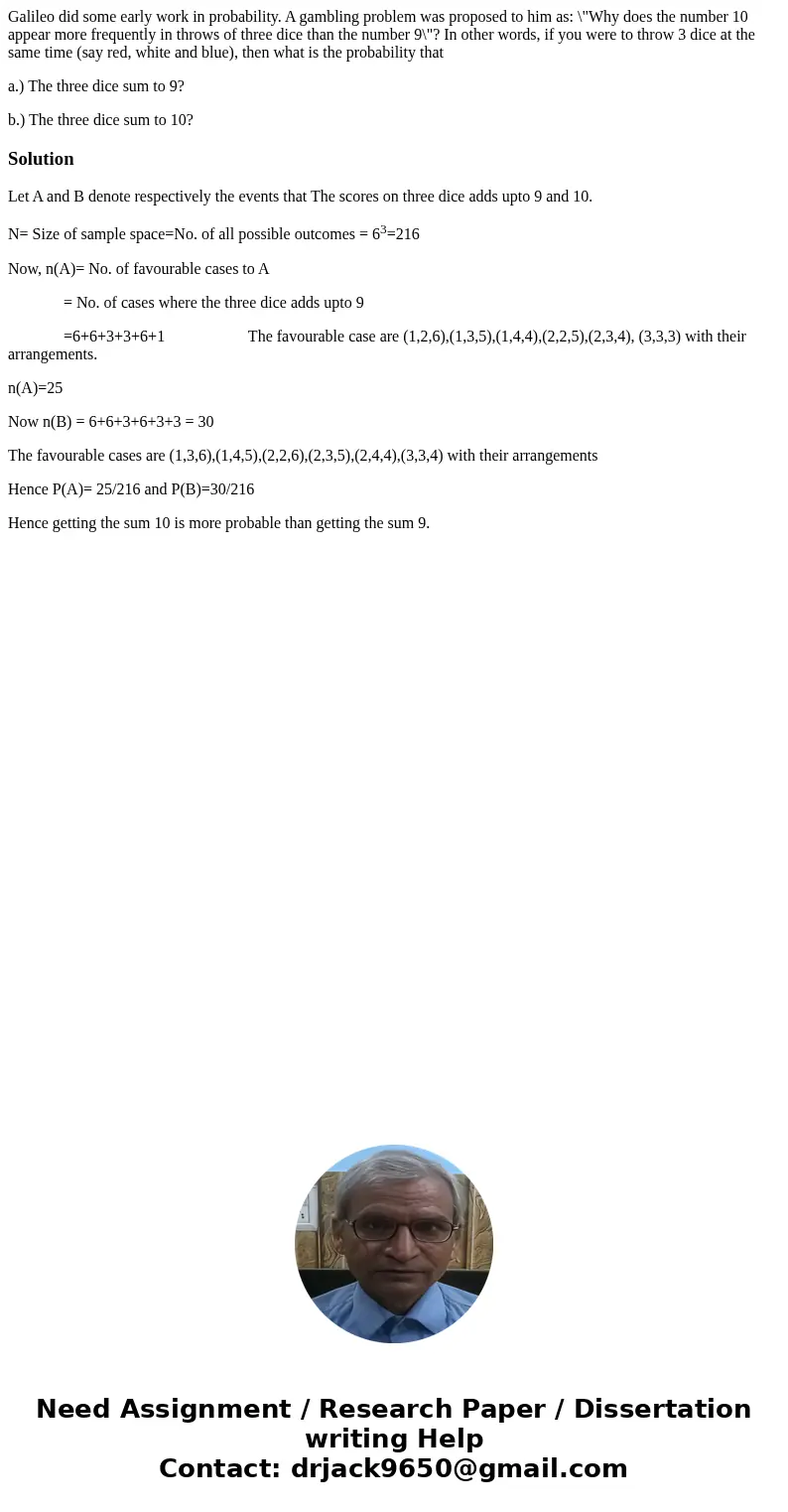Galileo did some early work in probability A gambling proble
Galileo did some early work in probability. A gambling problem was proposed to him as: \"Why does the number 10 appear more frequently in throws of three dice than the number 9\"? In other words, if you were to throw 3 dice at the same time (say red, white and blue), then what is the probability that
a.) The three dice sum to 9?
b.) The three dice sum to 10?
Solution
Let A and B denote respectively the events that The scores on three dice adds upto 9 and 10.
N= Size of sample space=No. of all possible outcomes = 63=216
Now, n(A)= No. of favourable cases to A
= No. of cases where the three dice adds upto 9
=6+6+3+3+6+1 The favourable case are (1,2,6),(1,3,5),(1,4,4),(2,2,5),(2,3,4), (3,3,3) with their arrangements.
n(A)=25
Now n(B) = 6+6+3+6+3+3 = 30
The favourable cases are (1,3,6),(1,4,5),(2,2,6),(2,3,5),(2,4,4),(3,3,4) with their arrangements
Hence P(A)= 25/216 and P(B)=30/216
Hence getting the sum 10 is more probable than getting the sum 9.

 Homework Sourse
Homework Sourse